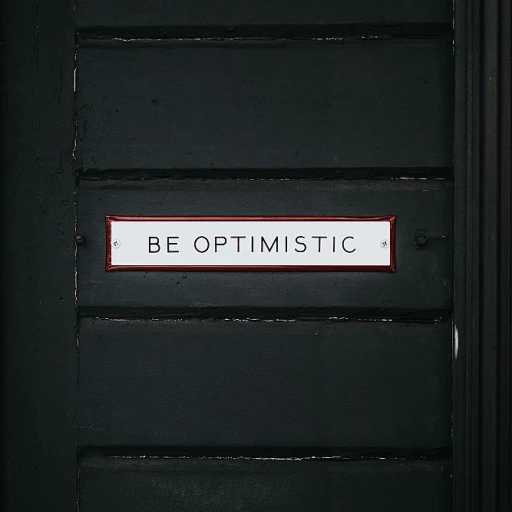Understanding Proactive Talent Acquisition
The Essence of Proactive Hiring
Proactive hiring, often referred to as forward-thinking talent acquisition, is not just a fancy buzzword. It presents an essential shift in how organizations approach their recruitment practices. Instead of waiting for a vacancy to emerge and then scrambling to fill the position, proactive hiring involves anticipating future hiring needs and continuously scouting and engaging potential candidates. Think of it as building a network of ready-to-go prospects even before the need arises. This approach enables your company to remain competitive in the ever-evolving job market landscape. When practiced effectively, proactive hiring ensures you have a pipeline of high-quality candidates, reducing the time and resources traditionally spent during the reactive recruitment process. By doing so, businesses are able to align their workforce planning with their strategic objectives. An integral part of proactive hiring is the focus on creating meaningful relationships with potential future employees. This goes beyond just filling positions; it’s about identifying and nurturing talent that aligns with your company’s vision and culture. Emphasizing these relationships helps to cultivate a dedicated and motivated workforce ready to innovate and drive the company towards its goals. Moreover, with an emphasis on proactive strategies, companies can effectively head off skill shortages by continually engaging with and fostering relationships with digital talent. This not only provides competitive edges but also ensures that when positions do open up, you have a pool of candidates who are familiar with your brand and culture, reducing time to fill and improving quality of hire. To delve deeper into effective strategies for finding talent in the digital landscape, explore this resource on finding digital talent. This proactive approach ties seamlessly with other facets of strategic recruitment, such as building a strong employer brand and leveraging social media, topics which we will discuss later. By understanding and implementing proactive hiring practices, organizations can set the foundation for a more dynamic and robust talent acquisition strategy.Building a Strong Employer Brand
Crafting an Intuitive Employer Brand
In today's competitive market, having a strong employer brand is vital for attracting top talent. Your brand should convey not just what you do, but who you are as an organization. This involves showcasing your company culture, values, and mission in a way that resonates with potential candidates. To create an employer brand that stands out, consider aligning your organization's messaging with its core values and mission. Be authentic and transparent, as candidates are increasingly looking for workplaces that align with their personal values and long-term aspirations. Collaborating with your marketing team can be beneficial in translating these values into compelling stories that highlight the unique aspects of your company. Additionally, including testimonials and success stories from current employees on your website or social media channels can provide real-life insights into the work environment. These elements combined will help build a narrative that future employees can connect with emotionally.Investing in Community Engagement
Community engagement is another pillar of a powerful employer brand. Participating in industry events, supporting local causes, or hosting workshops and seminars are all effective ways to display your commitment to the community. It not only helps to foster goodwill but also positions your company as an active and responsible member of the society. Moreover, engaging with the community can provide opportunities to connect with potential candidates who value these same commitments. By being present and active in your local or industry community, you are enhancing your visibility and reinforcing your brand message of trust, responsibility, and innovation. For more insights into creating a future-ready talent pool and strengthening your brand image, be sure to check out our comprehensive guide on crafting a future-ready talent pool. This resource can provide you with further strategies to refine your talent acquisition approach. By crafting an intuitive employer brand that captures your organizational values and investing in community engagement, you lay the foundation for proactive hiring practices that attract and retain top talent. Together with data-driven recruitment strategies and leveraging social media, described in subsequent sections of this article, a cohesive and robust talent acquisition framework can be established for your company.Leveraging Social Media for Recruitment
Utilizing Online Platforms for Recruitment Success
In today's digital age, harnessing the power of social media in recruitment is not just a trend—it's a necessity. Organizations striving to lead in proactive hiring must understand that social media platforms offer an untapped goldmine of potential candidates. These platforms are more than just networking tools; they are vibrant ecosystems where professionals engage, share content, and seek new opportunities. Being active on social media enables companies to highlight their employer brand—showcasing their work culture, values, and employee testimonials. This was touch upon previously, reinforcing the importance of a solid employer branding strategy. Engaging content, whether in the form of posts, videos, or webinars, can significantly boost your brand’s visibility and appeal to talented individuals. Social media also provides a valuable channel for not just identifying, but interacting with potential candidates early on. Leveraging these platforms effectively can mean nurturing relationships over time, instead of merely posting job advertisements when openings become available. By participating in industry discussions, sharing insights, and responding promptly to queries, recruiters demonstrate their company’s commitment to transparency and community engagement. Furthermore, data analytics tools integrated within these platforms can offer profound insights. Recruitment teams can analyze engagement metrics to adjust strategies in real-time, ensuring that they reach the most relevant audience. Companies that utilize social media in this data-driven manner can significantly outperform their competition, refining outreach processes and enhancing candidate experience. For a deeper dive into successful talent acquisition strategies, consider how these digital innovations can be integrated alongside other recruitment strategies. This holistic approach can redefine how your organization connects with future team members.Implementing Data-Driven Recruitment Strategies
Data as the Compass in Hiring
In the evolving landscape of talent acquisition, mastering the art of proactive hiring requires more than intuition—it demands a data-driven approach. By harnessing the power of data analytics, companies can refine their recruitment processes, predict hiring needs, and make informed decisions that align with long-term business objectives. The advent of big data has transformed how businesses approach proactive recruitment. It's no longer just about filling a position, but about anticipating the future skills and talents your organization will need. This foresight enables companies not only to fill existing roles but to mold their employer brand, as discussed in the previous sections. To begin, collecting meaningful data is crucial. This means looking beyond traditional metrics such as time-to-fill or cost-per-hire. Instead, incorporate broader and more nuanced data points, such as candidate source quality, engagement rates, and candidate experience metrics. By doing so, companies can sharpen their approach, zeroing in on strategies that yield the highest quality hires. Moreover, predictive analytics offers the capability to anticipate future workforce trends. This allows businesses to stay ahead of the curve, aligning talent pipelines with business demands. For instance, data can highlight which skills are becoming obsolete and which ones are becoming critical, allowing for a more strategic approach to talent acquisition. By integrating data analytics into the recruitment strategy, organizations enhance their efficiency and efficacy in hiring. This strengthens the overall candidate experience, a crucial component we've touched upon previously, ensuring that potential candidates feel valued and understood throughout their recruitment journey. In conclusion, leveraging data in recruitment is not a fleeting trend; it's an essential component of modern talent acquisition strategies. As we continue to explore the long-term benefits of proactive recruitment, remember that data serves as your compass, guiding informed decisions and optimizing your talent acquisition efforts for sustained success."}Enhancing Candidate Experience
Transforming the Candidate Journey
As we delve into the realm of proactive hiring, it's crucial to recognize the significance of refining the candidate experience. This not only bolsters your brand but also amplifies your talent acquisition strategy, setting a positive tone that resonates throughout the recruitment process. While building a strong employer brand lays a solid foundation and leveraging social media expands your reach, enhancing the candidate experience ensures you retain the interest and engagement of your prospective talents. A seamless journey from the first touchpoint to the job offer can mean the difference between securing top-tier candidates and losing them to more proactive competitors. Start by openly communicating with applicants at every stage. Transparency fosters trust, and candidates appreciate knowing where they stand in the process. This approach, combined with timely feedback, keeps them engaged and demonstrates that you value their time and efforts. Implementing data-driven insights can further personalize the candidate journey, offering tailored communication and guidance that aligns with their career aspirations. Additionally, consider investing in technology that simplifies application processes. Applicants should feel no friction when applying to your roles, and innovation in this area could set your company apart. Assess your current systems, identify potential bottlenecks, and strive for continual improvement based on candidate feedback. A focus on enhancing the candidate experience communicates your company's culture and values, making a lasting impression. It is a testament to how you would treat them as future employees, ultimately making them champions for your brand whether they join your organization or not. By creating a thoughtful candidate experience, you not only improve your recruitment outcomes but also contribute to the long-term benefits that come with a proactive talent acquisition strategy. Such enhancements are integral to maintaining a competitive edge in today's dynamic hiring landscape.Long-Term Benefits of Proactive Recruitment
The Lasting Impact of Forward-Thinking Recruitment
Embracing a proactive approach to talent acquisition offers organizations a myriad of long-term benefits that extend beyond immediate hiring needs. By anticipating future talent requirements and engaging with potential candidates early, companies can significantly reduce time-to-hire and associated costs. This strategic foresight ensures that when a position becomes available, a well-curated pool of candidates is ready to step in, minimizing disruptions to productivity.
Moreover, proactive recruitment fosters stronger relationships with candidates. By maintaining ongoing communication and engagement, companies can build a community of talent that feels connected and valued, even before they officially join the team. This not only enhances the candidate experience, as discussed earlier, but also boosts the likelihood of securing top talent when the time comes.
Another long-term advantage is the positive impact on the organization's employer brand. As explored in previous sections, a strong employer brand is crucial in attracting and retaining high-quality candidates. By consistently demonstrating a commitment to proactive talent acquisition, companies position themselves as industry leaders and employers of choice, further solidifying their reputation in the competitive job market.
Finally, organizations that invest in proactive recruitment strategies are better equipped to adapt to changing market conditions. Whether it's a shift in industry trends or an unexpected increase in demand for certain skills, these companies have the agility to respond swiftly and effectively, ensuring sustained success and growth.








